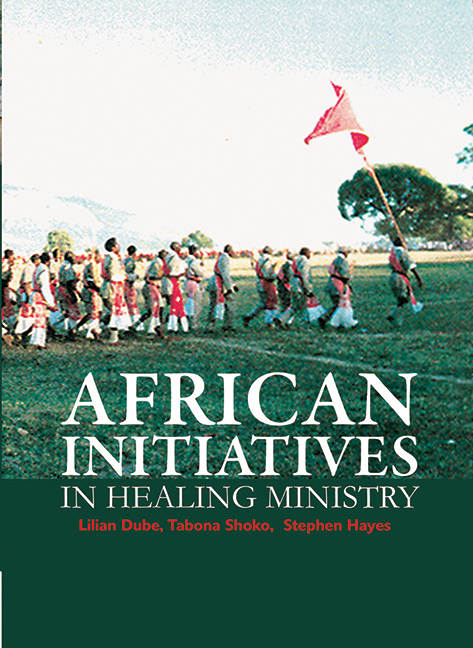Agnes Majecha's therapeutic praxis
Published online by Cambridge University Press: 28 February 2020
Summary
This chapter examines another type of Mrs Majecha's deliverance ministry concerned with avenging spirits (ngozi) and witchcraft (uroyi), and especially Majecha's exorcism of ngozi through appeasement. I will also consider the prophetess's contribution towards witchcraft eradication through cleansing rituals leading to the witch's rehabilitation into the family and society. The phenomenon of invocation of spirits (kufemba/kuhaka mweya) is central to Majecha's exorcism of both ngozi and witchcraft spirits. Agnes Majecha can, therefore, be identified with a diviner in the context of what Kirwen says about Christian priests as diviners, namely:
The more a Christian priest takes on the role of the diviners – the divinely inspired healer – the more effective and meaningful he becomes in the lives of the Africans. (Kirwen 1987:106)
While deliverance from zvikwambo involves the trapping and destruction of visible and tangible objects of various forms and sizes that have been imbued with evil, the main focus of this chapter is deliverance from evil spirits. The rituals have complex spiritual processes for the exorcism of undesirable evil spirits. Exorcism is one of Mrs Majecha's specialities. The prophetess has declared war against evil spirits, which makes her ministry relevant to many people who need deliverance ministry. This is her mission to the community around her and to the world. Her ministry extends to both Christians and non- Christians. While the mainstream churches’ missionary attention is on baptising and Christianising people, Mrs Majecha emphasises the need to reach out to the same people with deliverance and protection.
Most Africans, having received the message of God's caring love, prayers, and sacraments, look for additional means of protection against evil spirits. For this they usually resort to traditional rites and sacred objects such as amulets. They lead dual lives as both Christians and traditionalists. Mrs Majecha offers deliverance to those troubled by evil spirits through her exorcism ministry. Her authority over the evil spiritual realm depends on the Holy Spirit. She believes that the prayer she says when people consult her and just before an exorcism ritual is the sole source of her power. The Holy Spirit comes and empowers her and allows God to use her after this prayer. Majecha sprinkles salt on their feet because salt has a weakening effect on evil spirits.
- Type
- Chapter
- Information
- African Initiatives in Healing Ministry , pp. 99 - 119Publisher: University of South AfricaPrint publication year: 2011



